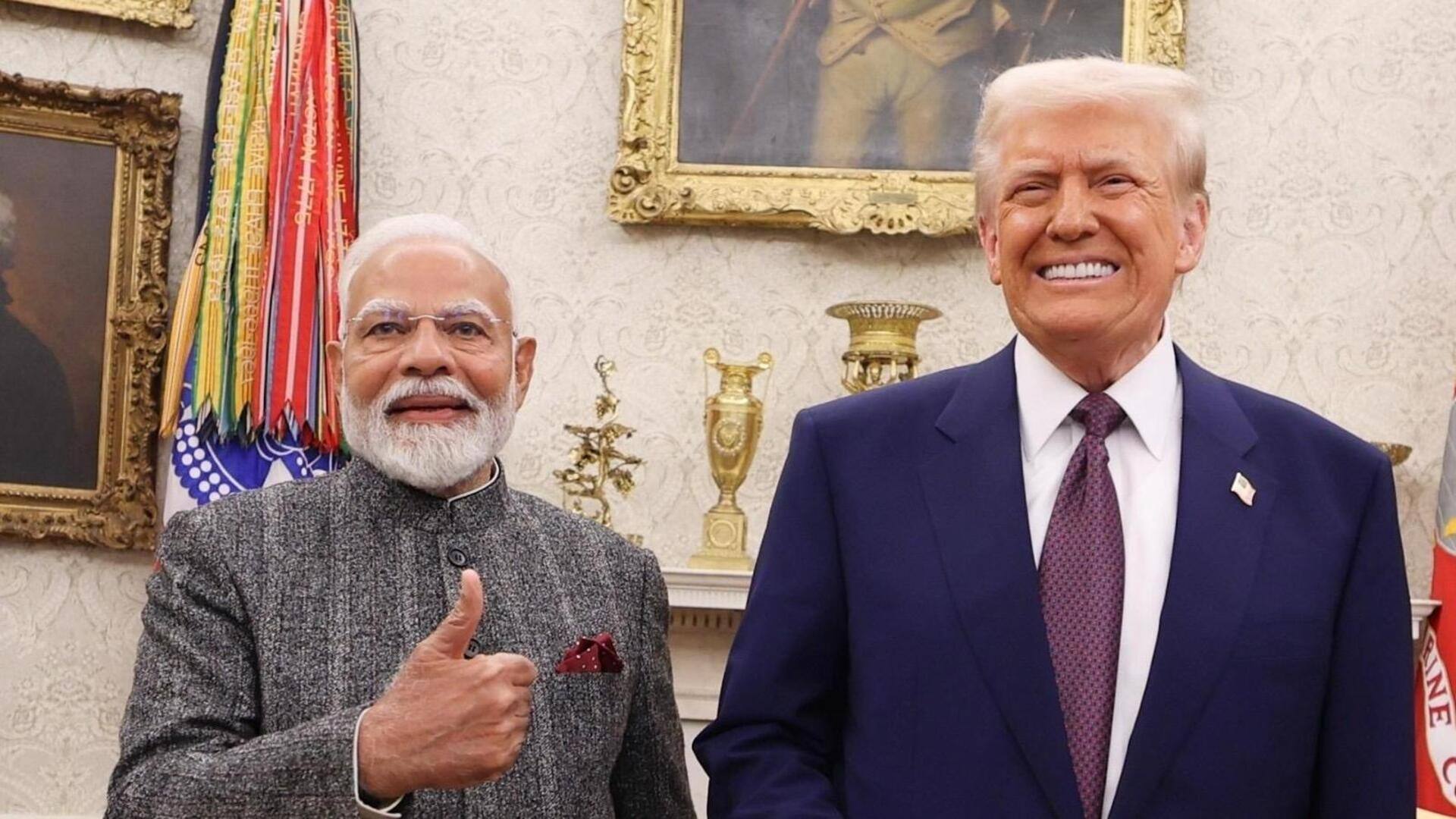
India officially denies Trump's role in India-Pakistan ceasefire
What's the story
The Indian government has formally denied United States President Donald Trump's assertion of mediating a ceasefire between India and Pakistan. The Ministry of External Affairs (MEA) reiterated its long-standing national position that all matters related to Jammu and Kashmir would be resolved bilaterally by India and Pakistan. "That stated policy has not changed," MEA said, adding that the main issue is "vacation of illegally occupied Indian territory by Pakistan."
Trade allegations
India dismisses Trump's trade threat claim
The Indian government has also rejected Trump's claim that he threatened to halt trade with India and Pakistan to get them to agree to a ceasefire. The MEA said, "From the time Op Sindoor started on May 7 till the understanding on cessation of military action on May 10, there were conversations between Indian and US leaders on the evolving military situation. The issue of trade did not come up in any of these discussions."
Nuclear concerns
India's military action was conventional, not nuclear
After Trump's assertion that he had averted a nuclear war, the Indian government maintained that it was its military action that was completely conventional. The government warned other countries not to be influenced by Pakistan's nuclear blackmail. Despite reports indicating that Pakistan's National Command Authority met on May 10, Islamabad subsequently denied the presence of any "nuclear angle," the Indian government said.
Ceasefire clarification
India clarifies ceasefire agreement details
The Indian government has clarified that the details of the ceasefire agreement were finalized over a phone call between the Director Generals of Military Operations (DGMOs) at 3:35pm on Saturday. The Pakistani high commission requested the call at 12:37 hours. "The Pakistani side had initial difficulties connecting the hotline for technical reasons," MEA spokesperson Randhir Jaiswal said, adding, "The timing was then decided based on the availability of Indian DGMO."
Ceasefire impact
Force of Indian arms compelled Pakistan to ceasefire
Jaiswal stressed that it was the "force of Indian arms that compelled Pakistan to stop its firing." The government's message to countries in touch with both sides was clear and consistent: India would respond to the April 22 Pahalgam terrorist attack by hitting terrorist infrastructure, but if Pakistani armed forces fired, Indian armed forces would respond; if Pakistan stopped, India would too.